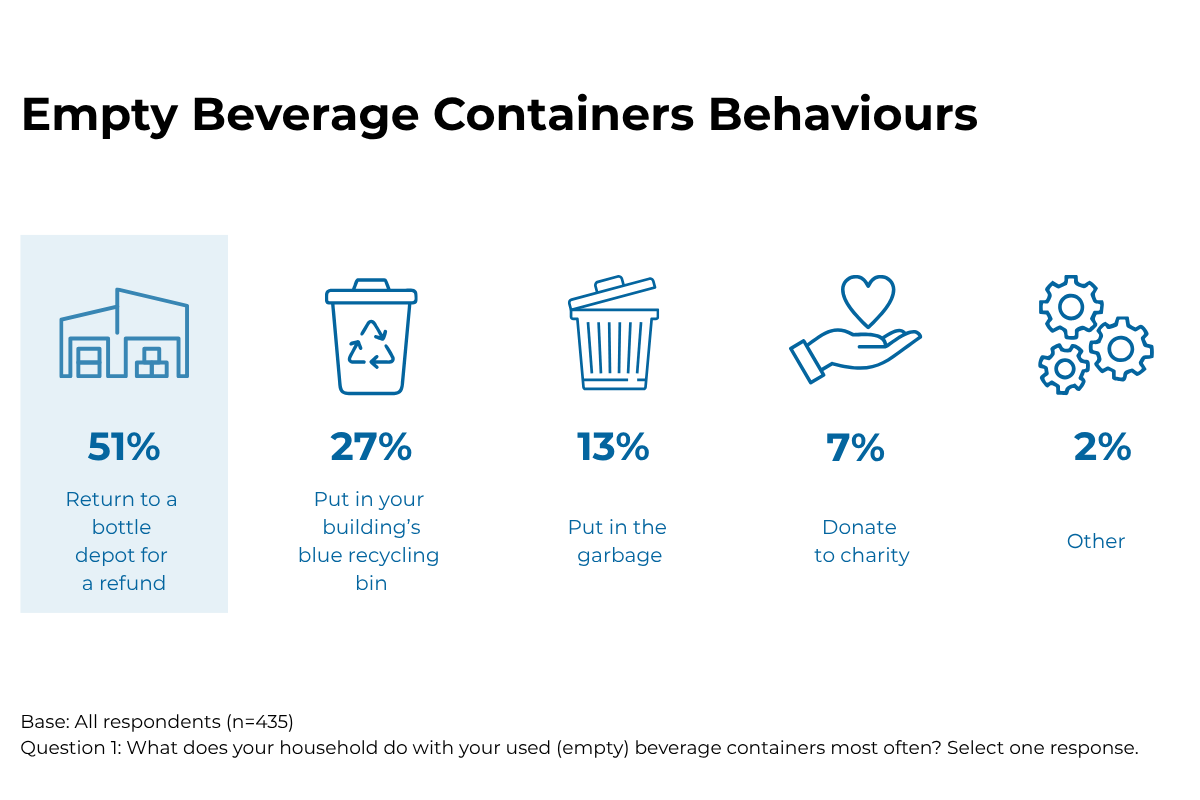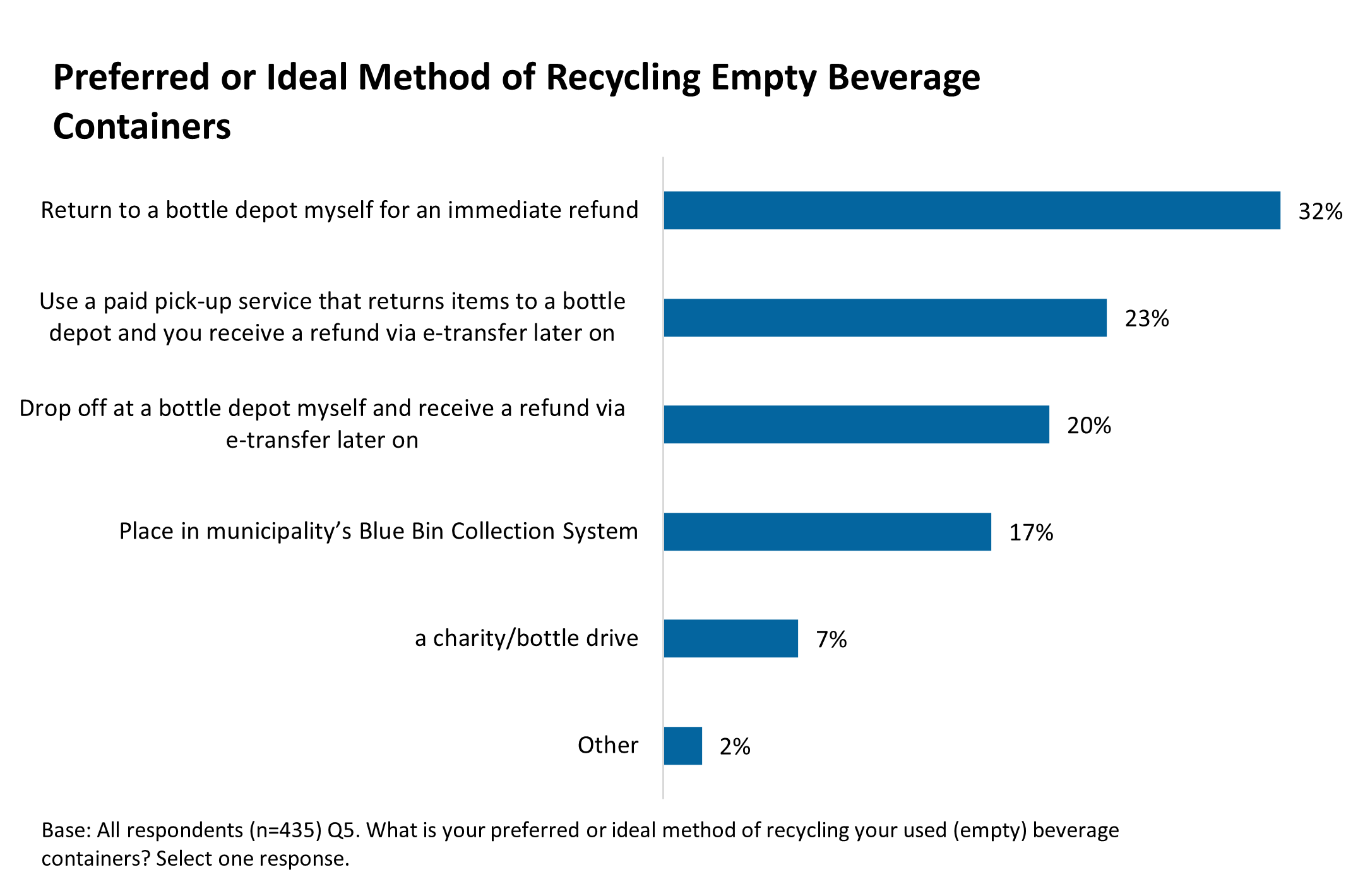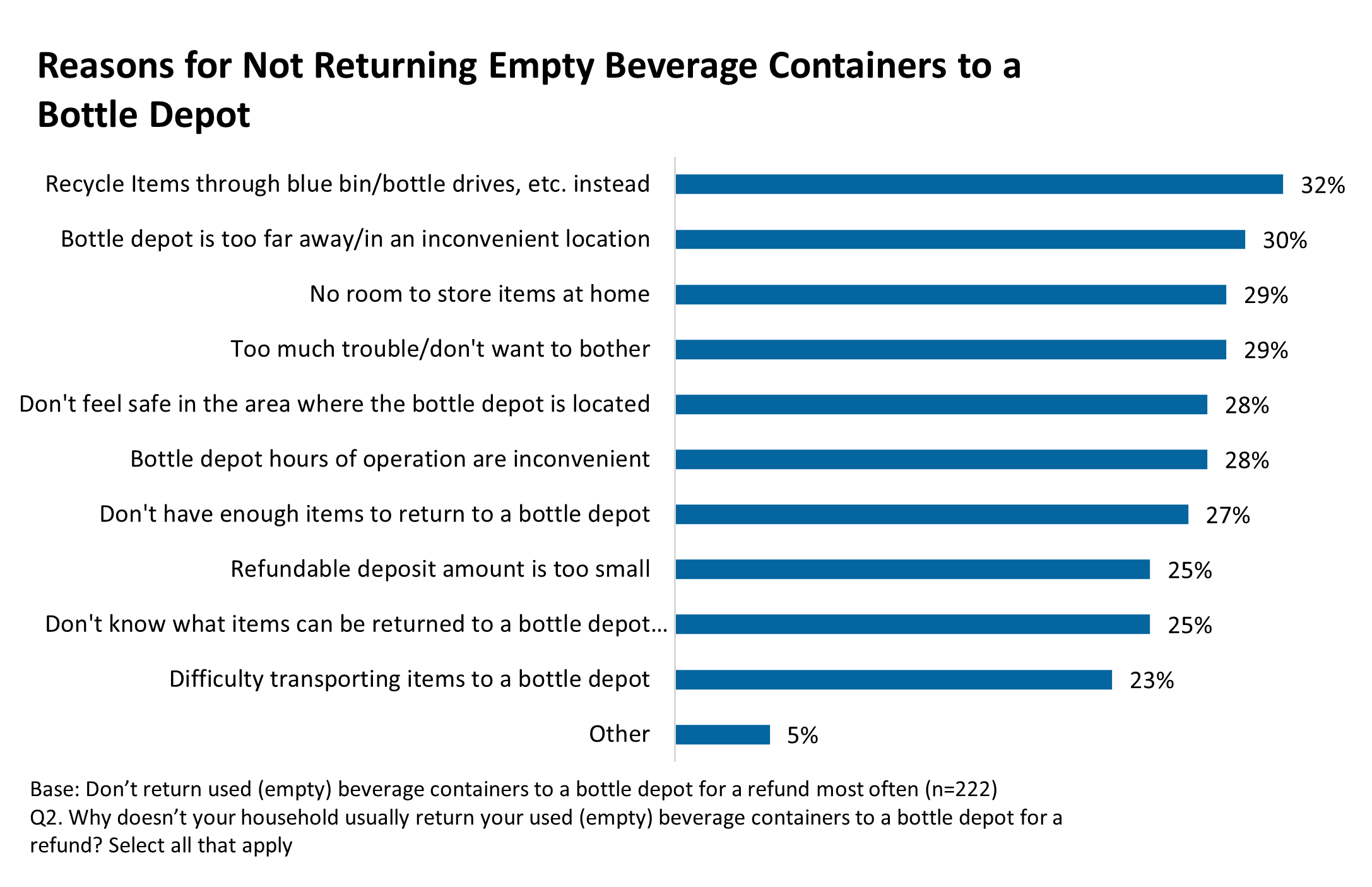Behaviors, Barriers, and Better Solutions
A study by Alberta’s Beverage Container Management Board (BCMB) conducted in late 2024, has lifted the lid on the realities of beverage container recycling in the province’s high-density urban areas. The result is a nuanced look at provincial consumer behaviour, revealing not just what Albertans do, but what they wish they could do.
Behaviours
A core group of Albertans residing in urban areas is committed to Alberta’s beverage container recycling system. Just over half of respondents (51%) in these dense urban settings usually return their used containers to a bottle depot for a refund. Yet, 27% opt for the communal blue bin within their building, a choice that means forfeiting their deposit, as these containers are then typically outside the official refund system.
Unfortunately, 13% of respondents place their empty containers in the garbage. This may not be a defiance of recycling, but rather a resignation born from inefficiencies and inconveniences of Alberta’s current system. Small numbers also find their way to charity (7%) or other less common disposal methods (2%).
But, with roughly half of urban Albertans recycling beverage containers the proper way, the divergence begs a deeper question. Why do some Albertans save and return, while others opt for the nearest bin, or even the trash?

Barriers
The answers are evenly distributed among accessibility, personal convenience, and the practical constraints of urban high-density living.

Cited by 32% of respondents, the most common reason for bypassing depots was simply, "I recycle items through blue bin/bottle drives, etc. instead." This highlights perceived effortlessness which often overtakes direct financial incentives.
Not surprisingly, proximity is paramount. One in three of those surveyed cited bottle depots as being "too far away" or in an "inconvenient location." In the dense urban environments, where not everyone owns a vehicle, this distance can quickly become a significant logistical hurdle for many.
Another 29% admitted that returning their containers at depots is "too much trouble/don’t want to bother," while another 29% wrestled with the universal challenge of "no room to store items at home" – a familiar grievance for anyone in a compact living space.
Inconvenient hours of operation (28%), safety concerns around depot locations (28%), and even the practical reality of not having "enough items to return to a bottle depot" (27%) further added to the array of challenges.
Perhaps surprisingly, a quarter of respondents (25%) also expressed uncertainty about "what items can be returned," pointing to a knowledge gap. And for another 25%, the refundable deposit amount itself was "too small," subtly questioning the very incentive at the heart of the system.
Finally, the sheer "difficulty transporting items to a bottle depot" was a barrier for 23%, a particular issue for those without personal vehicles or easy access to transit.
But it’s not all about obstacles…

The study also ventured into the realm of the ’ideal.’ When asked about their preferred method, the immediate refund at the depot still topped the list at 32%. However, a significant 23% expressed a strong preference for a paid pick-up service, where items are carried away and a refund arrives via e-transfer – a clear signal that convenience, even at a cost, is highly valued. Another 20% were content with dropping off, as long as the refund was digital, streamlining the financial transaction.
Better Solutions
These aren’t just statistics; they are glimpses into the lives and practical considerations of urban Albertans. This is precisely the kind of work that the BCMB is integrating into its own future as we look to educate Albertans and enhance the provincial deposit return system.
As Alberta’s population continues to grow rapidly, particularly in urban centres, the efficient and effective management of waste, including beverage containers, becomes an increasingly critical challenge that BCMB will help manage.
This research sets to better understand the underlying streams of convenience, habit and aspiration that shape Albertans’ recycling decisions. The insights gleaned from this study are being intertwined into BCMB’s future business plan and upcoming projects for consumers and key system stakeholders.
Notes on the Study
The insights presented in this article are derived from an online panel survey conducted by Ipsos in December 2024. The survey included 435 adult (18+ years) residents living in apartments with three storeys or more across four Alberta cities: 201 from the City of Calgary, 203 from the City of Edmonton, 17 from the City of Lethbridge, and 14 from the City of Red Deer. This focused approach provides a snapshot of recycling habits within this specific demographic.